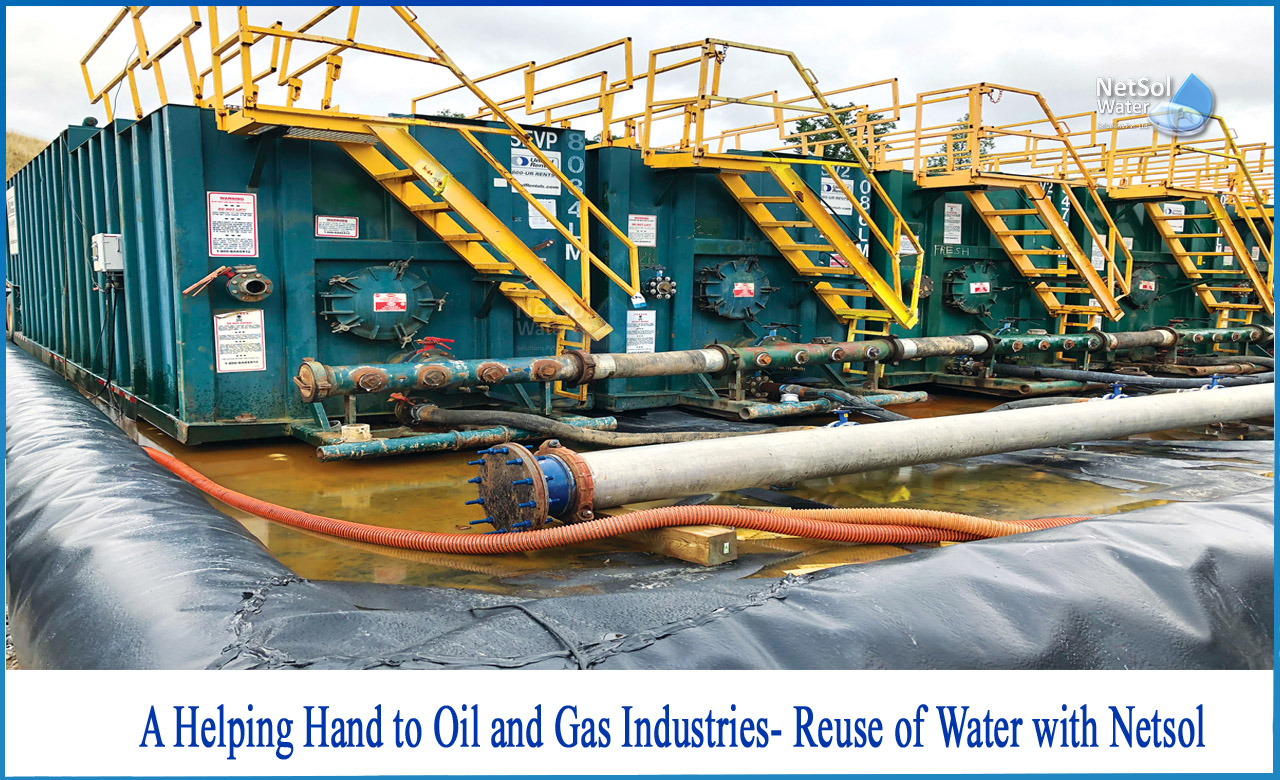How to Reuse of water in Oil and gas industries?
Water and wastewater treatment are used in drilling operations and the refinery process in the oil and gas sector. In these industries, UF water treatment systems are employed in tertiary process applications to help oil/gas operators and refineries get appropriate water for fracking operations or sustainable disposal.
The extraction process of oil
Drilling for oil takes place both on and off the coast. Drilling a hole under the earth's surface (the seafloor for offshore wells) down into the oil reservoir zone of the earth's crust is part of the extraction process. For a short period, the pressure in the oil reservoir is sufficient to drive it up spontaneously. This may extract up to 15% of the oil from the well. After then, the pressure below is no longer adequate, therefore pressure is created by pumping fluids or gases into the well head to keep the oil flowing. The oil has already been recovered to the tune of 35 to 45 percent. A tertiary step, which employs steam to heat the oil, extracts another 10 to 15% of the oil.
Refining procedure
Following the extraction of crude oil from the ground, it must be refined into goods that people may consume. Although the physics behind the refinery process is complicated, it essentially boils down to a multi-step distillation process. By heating the oil, this procedure separates it into its constituent elements. Each component has a distinct boiling point, which is separated inside the distillation column by the lowest boiling point at the top and the highest boiling point at the bottom. The components are separated from their layers and sent to be fine-tuned.
Water is used in some capacity in both the extraction and refining processes. Oils, fats, salts, heavy metals, and hydrocarbons, among other pollutants, are found in the wastewater generated by refineries and the produced water brought up from oil wells. Effective and long-lasting treatment methods are essential in the endeavour to fulfil environmental discharge requirements or criteria for wastewater reuse.
A: Contaminants in produced water
-Sodium chloride (chlorides)
-Grease and oil
-Radioactive material found in nature (NORM)
-Hydrocarbons
-Viruses, bacteria, and microorganisms
-Heavy Metal
-Compounds of Organic Origin
-Corrosion inhibitors, scale inhibitors, emulsion breakers, and other chemicals are used to prevent corrosion.
-Hardness
-Sulphur and hydrogen sulphide are both sulphur compounds.
B: Contaminants in refinery wastewater
-Free oil
-An emulsion of oil
-TSS
-BOD
-COD
-Sulphides
-Phenols
-Cyanides
-Ammonia
-Hydrocarbons
Treatment of produced water
Produced water is a by-product of oil well drilling operations. It picks up whatever was in the oil and the earth around it. These well drill operators cannot just dump the produced/flow back water wherever, especially for offshore operations, because the contaminants might cause major environmental impact.
Due to environmental regulations, generated water from onshore oil fracking operations cannot normally be transported down an injection well; instead, it must be trucked offsite or reused. Oil well operators can treat the generated water from several oil wells via a recycling operation to offer treated water for their next fracking activity, making reusing produced water far more cost effective.
UF water treatment systems are often used in the tertiary stage of a multi-step treatment process to remove trace suspended particles and oil/grease levels from treated water so that it may be used to provide water to fracked oil wells.
Treatment of feed water from refinery cooling towers
To compensate for the heat generated by refinery activities, cooling towers have been installed. The feed water must be free of debilitating impurities such as scale minerals, corrosive chemicals, iron, and organic matter in order for these towers to perform properly and effectively.
In the tertiary stage of treatment, UF water procedures can be used to remove suspended solids/turbidity, trace oil/grease, and colour from the feed water. This lowers the risk of colloidal fouling in subsequent stages of the process, such as ion exchange or reverse osmosis.
The pre-treatment of cooling tower feed water ensures that the system runs as efficiently as possible for as long as feasible. UF water systems, in combination with technologies like oil/water separation, centrifugal filtration, electrocoagulation, and clarifying, ensure that the treatment system continues to function properly.
The examples above are just two of the many ways that UF water treatment systems may be used as part of a treatment process to give oil and gas firms with a water treatment solution that matches their demands.
Netsol Water is Greater Noida-based leading water & wastewater treatment plant manufacturer. We are industry's most demanding company based on client review and work quality. We are known as best commercial RO plant manufacturers, industrial RO plant manufacturer, sewage treatment plant manufacturer, Water Softener Plant Manufacturers and effluent treatment plant manufacturers. Apart from this 24x7 customer support is our USP. Call on +91-9650608473, or write us at enquiry@netsolwater.com for any support, inquiry or product-purchase related query.



